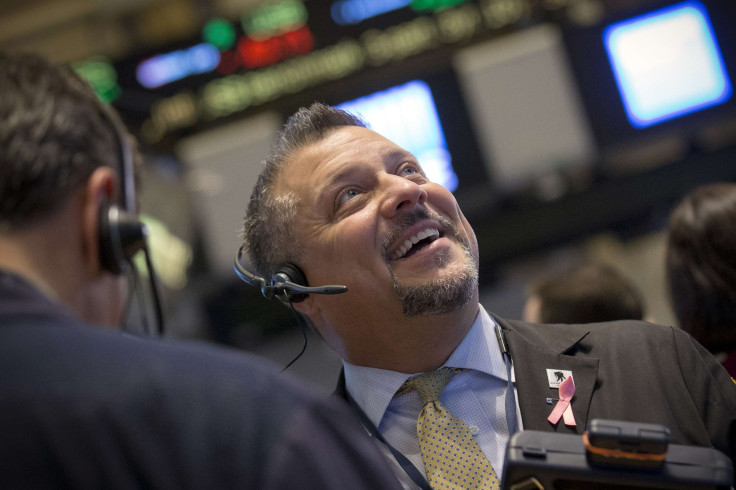Dow Jones Industrial Average Leaps 170 Points As US Dollar Rally Pauses

U.S. stocks rebounded Thursday, with the Dow Jones Industrial Average leaping more than 170 points, as investors cheered a slight pullback in the U.S. dollar. The greenback's retreat follows a surge earlier this week. The equity market's gains come despite a series of mixed data points, including a surprise drop in U.S. retail sales last month.
In morning trading Thursday, the Dow, which measures the share prices of 30 large industrial companies, jumped 169.44 points, or 0.96 percent, to 17,804.83. The S&P 500 stock index rose 17.09 points, or 0.84 percent, to 2,057.15. The Nasdaq composite gained 23.29 points, or 0.47 percent, to 4,873.23.
The U.S. dollar index fell about 1 percent Thursday after surging to multiyear highs against the euro and the Japanese yen this week, driven by speculation that the U.S. Federal Reserve could raise interest rates sooner than previously thought. The greenback remains up nearly 10 percent for the year. The euro edged higher to $1.06, slightly up after hitting a 12-year low Wednesday.
The blue-chip index managed to rally despite shares of Dow component Intel Corp. (NASDAQ:INTC) dropping more than 3.5 percent in morning trading. The chipmaker warned that its first-quarter revenue will be lower than previously expected and now expects revenue for the quarter to be $12.8 billion, down from its previous projection of $13.7 billion.
Economists also sorted through a batch of economic data that painted a mixed picture on the overall health of the U.S. economy. Data Thursday showed fewer Americans filed for unemployment benefits last week after weekly jobless claims fell 36,000 to a seasonally adjusted 289,000 for the week ended March 7, the Labor Department said. Economists had expected claims to fall to 305,000 last week, according to analysts polled by Thomson Reuters.
Separately, U.S. consumers unexpectedly spent less at retailers last month despite a steep drop in gasoline prices across America, marking the first time since 2012 that sales have dropped for three consecutive months. Retail sales dropped 0.6 percent in February after declining 0.8 percent in January, the Commerce Department said Thursday.
Business inventories, an economic figure that tracks the dollar amount of inventories held by retailers, wholesalers and manufacturers across the U.S., came in flat at $1.762 trillion in January, unchanged from December, the Commerce Department said Thursday.
© Copyright IBTimes 2024. All rights reserved.












